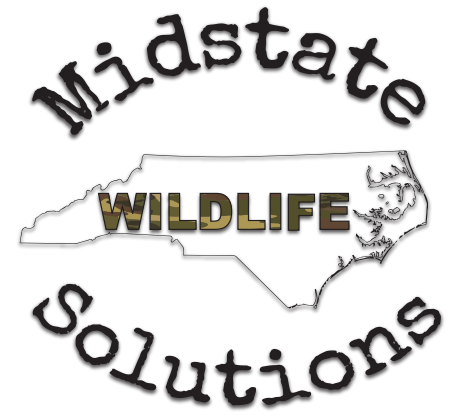
At Midstate Wildlife Solutions, we pride ourselves in providing humane and ethical wildlife treatment. Most people value the emotional and practical aspects of using animals to benefit humans. It has been scientifically proven that pain and stress can drastically alter the physiological state of animals. Anxiety occurs when animals are no longer able to adapt to changes in their environment or physiological condition and show maladaptive or abnormal responses. In order to safely move animals back into the wildlife and give them a chance to survive, they must be treated fairly.
Code of Ethics
- Helping to achieve conservation and survival of the species should be the goal of all members of the wildlife removal profession.
- Promote the interests of wildlife conservation, biodiversity and animal welfare.
- Cooperate with the conservation community in general, including wildlife agencies, conservation organizations, and research institutions to help maintain global biodiversity.
- Cooperate with governments and other appropriate agencies to improve standards of animal welfare and ensure the welfare of all animals in their care.
- Promote research and the dissemination of achievements and results in appropriate publications and forums.
- Deal fairly with members in the dissemination of information and professional advice.
- Promoting public education programs and cultural activities in zoos and aquariums.
Tips for Humane Treatment of Wildlife
- Learn more about wild animals in your area.
Learn about the most common wildlife in your city. Local wildlife reserves, zoos, rescue centers, and zoos can be a good place to start. If you have a prior knowledge of animals in your area, you will be able to give us a better description of the wildlife in your home.
- Do not feed wild animals with human food.
Wild animals can get sick from eating human food. Not only is it dangerous to get too close to wild animals, but it also creates a dependence on humans that is not good for anyone. If unwanted wildlife is not in your home, do not try and bait them with human food or they may want to linger after they are removed. You should give us a call as soon as you think there is unwanted wildlife in your home.
- Be respectful of the environment.
Pick up garbage (food scraps and more), which attracts wildlife to roads, putting them in danger. Recycling paper (and using less) and protects trees, which provide food and shelter for many wild animals. If you take good care of your home and do not leave out a lot of food, you can greatly reduce the chance of animals entering your home.
- Know how to take care of injured wildlife.
Unless an animal appears injured or in danger, there may be no need to rescue it. Signs that an animal needs your help include bleeding, a broken limb, chills etc. If you find abandoned or injured wildlife, give us a call in order to find out what to do next.







